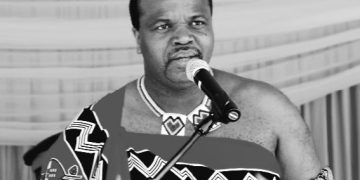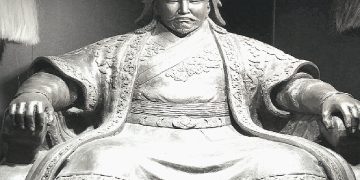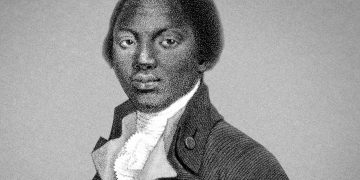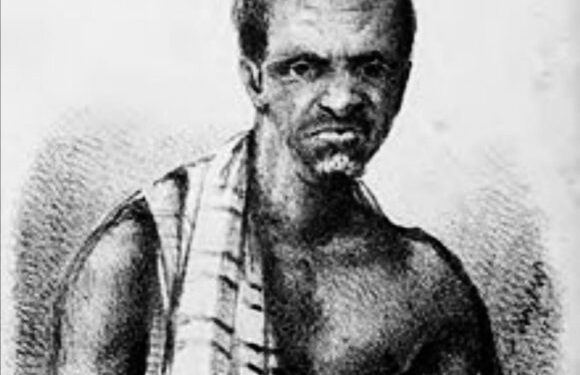Badu Bonsu II: The Legacy of a Captive King
Badu Bonsu II was a king of the Ahanta kingdom in present-day Ghana during the 19th century. His story is one of tragedy, resilience, and the struggle for freedom in the face of colonial oppression. In this article, we will delve into the life of Badu Bonsu II, his reign, and the lasting impact he has had on the history of Ghana.
Born in the early 19th century in the Ahanta kingdom, Badu Bonsu II ascended to the throne as a young king. He ruled over his people with wisdom and strength, and his reign was marked by a period of prosperity and cultural growth. However, his peaceful rule was soon disrupted by the encroaching forces of European colonialism.
During the 19th century, European powers, particularly the Dutch and the British, were vying for control over the lucrative trade in West Africa. The Ahanta kingdom, with its rich resources and strategic location, became a target for these colonial powers. In 1838, the Dutch signed a treaty with Badu Bonsu II, recognizing Ahanta as a Dutch protectorate. However, this treaty was soon violated by the Dutch, who imposed heavy taxes and restrictions on the Ahanta people.
In response to the Dutch oppression, Badu Bonsu II led a resistance movement against the colonial forces. He sought support from neighboring tribes and kingdoms to join forces in the fight against the Dutch. However, his efforts were not enough to withstand the superior military might of the colonial powers. In 1839, Badu Bonsu II was captured by the Dutch and taken as a prisoner.
The captivity of Badu Bonsu II marked a turning point in the history of the Ahanta kingdom. With their leader taken away, the Ahanta people were left vulnerable to further exploitation by the Dutch. The kingdom was gradually absorbed into the Dutch colonial administration, and the cultural and economic autonomy of the Ahanta people was eroded.
Despite his captivity, Badu Bonsu II continued to resist the colonial powers in any way he could. He maintained his dignity and fought for the rights of his people from his prison cell. His indomitable spirit and unwavering commitment to the cause of freedom made him a symbol of resistance and resilience for the people of Ghana.
Badu Bonsu II’s story did not end with his captivity. In 1839, he was executed by the Dutch colonial authorities, a brutal act intended to quell any further dissent. However, his execution only served to fuel the flame of resistance in the hearts of the Ghanaian people. Badu Bonsu II became a martyr for the cause of independence, and his sacrifice inspired generations of Ghanaians to fight for their freedom.
Today, Badu Bonsu II is remembered as a hero and a symbol of Ghanaian independence. His story serves as a reminder of the atrocities committed during the era of colonialism, and the resilience of those who fought against it. Monuments and memorials have been erected in his honor, and his legacy continues to inspire the people of Ghana to strive for a better future.
Additional details about Badu Bonsu II and his significance:
1. Cultural Legacy: Badu Bonsu II was not only a political leader but also a custodian of the Ahanta culture. During his reign, he promoted the arts, encouraged cultural practices, and preserved the traditions of his people. His commitment to cultural preservation has left a lasting impact on the Ahanta community, ensuring that their heritage is cherished and celebrated.
2. Execution and Aftermath: Badu Bonsu II’s execution by the Dutch colonial authorities was a brutal and unjust act. However, it did not quell the resistance movement he had inspired. Instead, it fueled the determination of the Ghanaian people to fight for their freedom. His execution became a rallying cry for independence, and his memory continues to inspire generations of Ghanaians to strive for justice and sovereignty.
3. Symbol of Ghanaian Independence: Badu Bonsu II’s story is intertwined with the broader struggle for Ghanaian independence. His resistance against colonial oppression and his ultimate sacrifice have made him a symbol of the fight for freedom in Ghana. His legacy serves as a reminder of the resilience and strength of the Ghanaian people in the face of adversity.
4. Recognition and Commemoration: Badu Bonsu II’s contributions and sacrifice have not gone unnoticed. He is honored and revered in Ghana, with monuments, memorials, and museums dedicated to his memory. These tributes ensure that his story is preserved and shared with future generations, reminding them of the importance of standing up against injustice and oppression.
5. Impact on Ghanaian Identity: Badu Bonsu II’s legacy has played a significant role in shaping the national identity of Ghana. His story serves as a reminder of the struggles and sacrifices made by previous generations in the fight for independence. It instills a sense of pride and resilience in Ghanaians, fostering a collective consciousness of their history and the ongoing pursuit of social justice and equality. Check out my technology website!
In summary, Badu Bonsu II’s life and legacy encapsulate the spirit of resistance, cultural preservation, and the pursuit of freedom. His story continues to inspire and educate people about the struggles faced by Ghana and other African nations during the era of colonialism. Badu Bonsu II will forever be remembered as a symbol of Ghanaian independence and a beacon of hope for those fighting against oppression.
Badu Bonsu II was a courageous and visionary leader who fought against the forces of colonialism. His reign and subsequent captivity symbolize the struggle for freedom and the resilience of the Ghanaian people. His story serves as a reminder of the importance of preserving our history and fighting for justice and equality. Badu Bonsu II’s legacy will forever be etched in the annals of Ghanaian history, reminding us of the power of resistance and the pursuit of freedom.













Comments 1